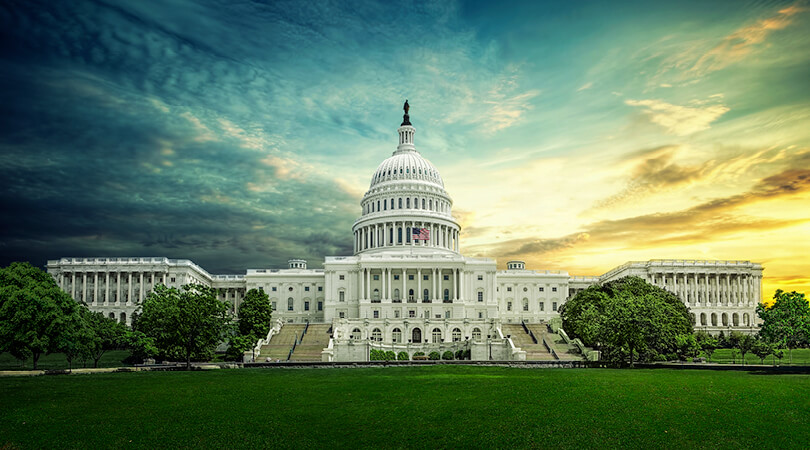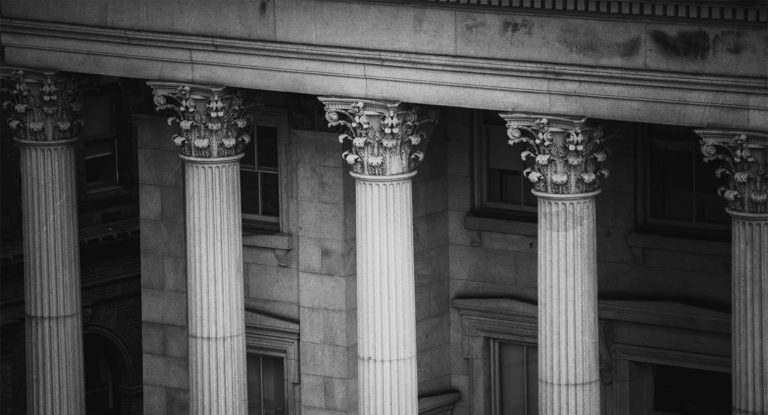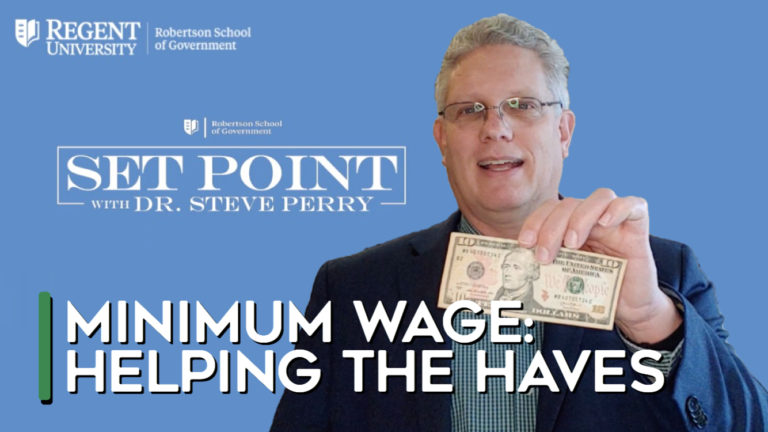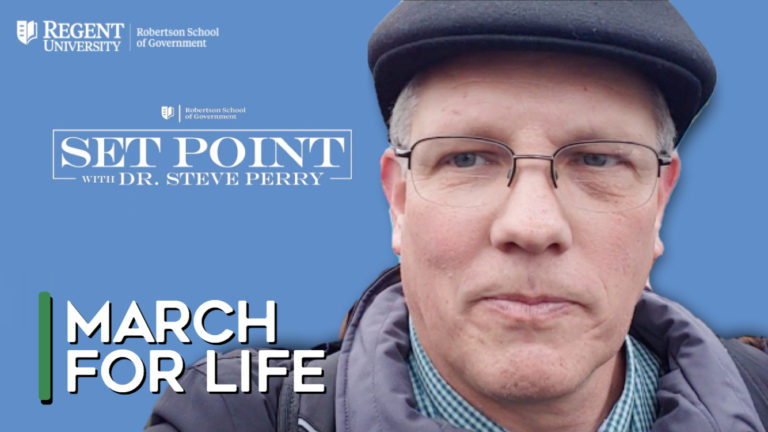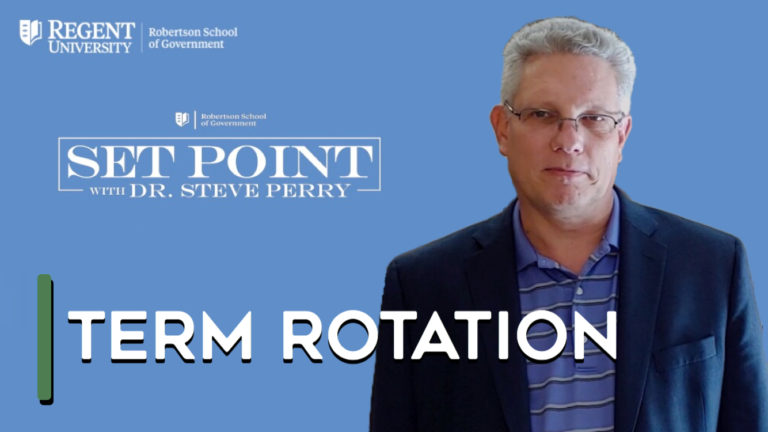Preserving a Constitution Designed for a Moral and Religious People
One of the foremost constitutional theorists of the founding generation, John Adams, observed, “Our Constitution was made only for a moral and religious People. It is wholly inadequate to the government of any other.”1 He wasn’t the only Founding Father to hold this view. Indeed, James Madison wrote that our Constitution requires “sufficient virtue among men for self-government,” otherwise, “nothing less than the chains of despotism can restrain them from destroying and devouring one another.”2
Many of our Founders were men of faith or were influenced strongly by the Judeo-Christian tradition.3 They accepted the premise of mankind’s imperfect nature. They had experienced first-hand the oppressive dictates of Parliament and the Crown that led to the American Revolution. And they were rightly suspicious of the accumulation of governmental power by one person or a small body — “the very definition of tyranny” according to Madison.4
Consistent with these experiences and beliefs, the Founders imbued liberty-preserving principles into the very structure of the new government. They divided power between federal and state governments, apportioned federal power among three branches of government, and limited the power of the federal government to certain delegated functions. But the Founders also knew that these devices alone were inadequate to preserve and sustain our new nation.
Instructors of Virtue
Why did they believe that the success of the union ultimately depended on the virtue of the people? Simply put, the Founders knew that government was downstream from culture. A virtuous people would courageously defend the rights endowed by their Creator and restored by the blood of patriots. But a fearful people would readily cede these rights in exchange for a fleeting sense of security. As Princeton’s Robbie George explains, “[P]eople lacking in virtue could be counted on to trade liberty for protection, for financial or personal security, for comfort … for having their problems solved quickly. And there will always be people occupying or standing for public office who will be happy to offer the deal.”5
“But what is government itself, but the greatest of all reflections on human nature?”
-James Madison
So how do we cultivate the virtue needed to sustain our republic? It is, after all, contrary to the founding premise of man’s imperfection. And to entrust the government with this task is to invite the fox into the proverbial henhouse. Indeed, Madison observed, “[W]hat is government itself, but the greatest of all reflections on human nature?”6
It falls, then, to the family, the church, and educational institutions to transmit “to each new generation the virtues without which free societies cannot survive: basic honesty, integrity, self-restraint, concern for others and respect for their dignity and rights, civic-mindedness, and the like.”7 In other words, even the structural constraints of our Constitution will fail without institutions to teach people how those constraints protect liberty, to explain why that liberty is vital to the success of our country, and to inculcate the virtue needed to resist a culture of immediate gratification.8
The Robertson Center for Constitutional Law
Institutions of higher education like Regent University play an important role in preserving the values on which our nation was founded. For this reason, we are excited to launch Regent Law’s newest endeavor, The Robertson Center for Constitutional Law. The Center will promote first principles in constitutional law such as textualism, originalism, separation of powers, limited government, judicial modesty, and religious freedom — all while helping educate and cultivate the next generation of Christian lawyers.
The Robertson Center for Constitutional Law will promote first principles in constitutional law while educating and cultivating the next generation of Christian lawyers.
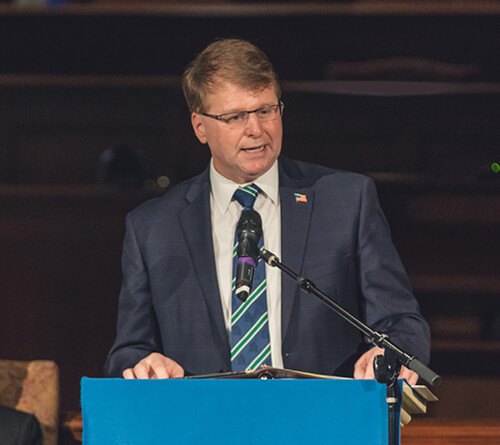
The Place of Christianity in Constitutional Law
Such an endeavor prompts the question: How should a Christian think about constitutional law? To begin, we approach this question with humility. Christianity is not “a club to be wielded against those who do not share” that faith.9 Instead, Christians are called upon to recognize our own limitations and shortcomings.
Although our faith does not compel a single legal or political philosophy, certain aspects of Christian belief inform our views of constitutional law. As discussed above, man is selfish and imperfect. That makes us inherently skeptical of concentrated power. History well illustrates concentrated power’s destructive impact on liberty. We should distrust even those who claim that they can “bring about the Kingdom of Heaven on this earth through our political efforts” and know that “[i]f we allow our governments to try, the result will be tyranny.”10
Our Founders understood this well. Indeed, George Washington extolled the virtues of our nation’s pluralist legal order in his August 18, 1790, letter to the Hebrew Congregation in Newport, “All possess alike liberty of conscience and immunities of citizenship. … For happily the Government of the United States, which gives to bigotry no sanction, to persecution no assistance requires only that they who live under its protection should demean themselves as good citizens, in giving it on all occasions their effectual support.”11We also know — indeed, we hold self-evident — that government officials, lawyers, and judges are not the creators of our rights. Our Creator endowed those rights to We the People.12 Our Constitution recognizes this, restraining the power of the federal government and preserving the liberty of the people.
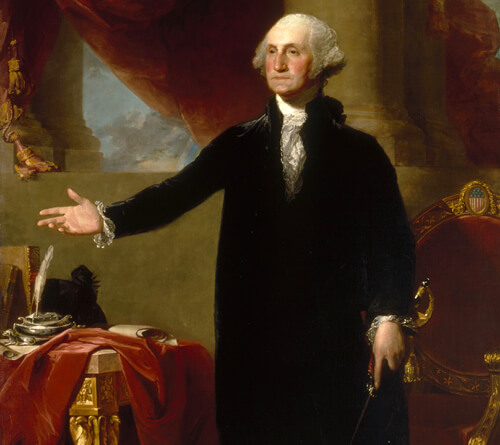
Textualism & Originalism Vs. Living Constitutionalism
This skepticism of state power and a desire to preserve democratic self-government accord most naturally with an originalist approach to constitutional interpretation. Originalism confines interpretation of the Constitution to the words of the constitutional text and tethers that interpretation to the public understanding, as closely as it can be discerned, of what the words of the Constitution meant when ratified (plus any lawful amendments). (Originalism’s cousin, textualism, applies a similar interpretive method to statutory law.) As the late Associate Justice of the U.S. Supreme Court Antonin Scalia explained, “Originalists believe that the provisions of the Constitution have a fixed meaning” so that its words “mean today what they meant when they were adopted, nothing more and nothing less.”13 Such constraints limit the reach of the unelected judiciary and preserve the political power of We the People.
Contrast these views with “living Constitutionalism,” which rose to prominence during the 20th century. Rather than ask what result the text or original public meaning of the Constitution requires, a “living Constitution” philosophy empowers the judge to consider what he or she thinks the Constitution should mean today. The allure of this approach is strong. After all, it is often much easier to convince five Supreme Court justices of the need for change than it is to amend the Constitution itself or convince the people’s representatives to change the law. As former Attorney General Edwin Meese pointed out, living constitutionalism “remold[s] principles in light of policies” instead of “judg[ing] policies in light of principles.”14
Focusing on the result, rather than on the analysis, delegates immense power, concentrated in members of the judiciary, to make decisions about some of the most important and controversial issues in society. Even worse, it allows them to make those decisions largely unmoored from the constitutional text and absent any democratic accountability. One simply cannot reconcile notions of popular sovereignty and skepticism of concentrated power with the idea that society should provide a small number of fallible judges with the power to infuse the constitutional text with their own personal values and policy preferences on many of the most significant — and hotly debated — societal issues. Such a delegation to unelected judges relinquishes democratic self-government. By contrast, requiring judges to adhere to the text and its original meaning provides constitutional decision-making with democratic legitimacy. We expect judges to find and adhere to the original meaning — to the extent that it can be determined — because that is the meaning that gained the political support of We the People required for ratification. This grant of authority, from the Creator, to We the People, and then to the federal government, is what furnishes our Constitution with its legitimacy.

The Renaissance Inspired by Justice Antonin Scalia
Harvard Law professor Richard Fallon is known to have remarked that most of his constitutional law students enter his class, whether they know it or not, as originalists. That’s how we intuitively read documents, whether it be a constitution, Shakespearean play, or an 18th century fried chicken recipe.15 We naturally try to make sense of these documents by seeking to understand what the words meant when they were written. It is a testament to the power of educational institutions, then, that while so many students enter law school with a common-sense inclination to read legal documents as originalists, so few leave law school with the same view.
That said, here’s some news that might surprise those who have not closely followed constitutional jurisprudence over the past 30 years or so: Thanks largely to Scalia, there has been a renaissance in textualism and originalism. In fact, Justice Elena Kagan, the former dean of Harvard Law School appointed to the Supreme Court by 44th U.S. President Barack Obama, opened the second day of her 2010 confirmation hearings by acknowledging that now, “We are all originalists.”16 Later, Kagan reflected on the emergence of textualism in statutory interpretation, declaring that “we’re all textualists now.”17
Kagan’s statements are truer today than when they were first made. U.S. President Donald Trump has appointed two Justices of the Supreme Court of the United States and roughly 20 percent of the judges on the federal courts of appeals, virtually all of whom subscribe to textualism and originalism.
From Classroom to Courtroom
This change is not merely academic. It’s having a real effect on outcomes in court. The lay reader surprised by the revival in originalism might be even more surprised to hear that, despite some widely publicized losses, defenders of religious liberty are having significant success in court. For example, the Alliance Defending Freedom, whose Supreme Court practice is led by Regent Law graduate Kristen Waggoner (’97), has won nine religious liberties cases in the last seven years at the U.S. Supreme Court.
Now, even many left-leaning lawyers and scholars use textualist and originalist interpretive methods to advocate for their positions. That is a significant change. And it is reason for optimism.
Of course, originalism and textualism will not always lead to results favored by one political group or another. Adoption of those methods means that case outcomes are based on what the words of the text demand, regardless of whose ox is gored. Moreover, lawyers and judges may still disagree on the proper interpretation of the text, or worse, attempt to use “originalist” or “textualist” arguments as cover to infuse the text with their preferred meaning.
So, What’s Next?
Expect federal courts to continue to embrace textualism and originalism in the years to come as Justices Neil Gorsuch and Brett Kavanaugh stay closely tethered to these modes of interpretation. Expect increasing use of originalism and textualism by those on both the right and the left. And, although the path might be bumpy at times, expect that this interpretive shift will, on balance, diminish the Supreme Court’s role as an agent of social change. Expect the Robertson Center for Constitutional Law to advocate powerfully for the self-evident truths set forth in our Declaration of Independence and enshrined in our Constitution. And expect Regent University’s School of Law to continue faithfully training the next generation’s fearless, principled advocates of liberty.
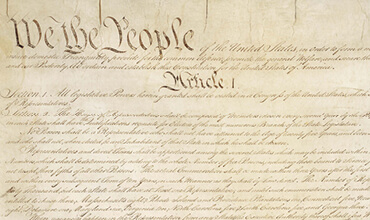
The biggest threat to our constitutional order … is the failure to pass to subsequent generations the character, virtue and knowledge required to protect the constitutional safeguards.
Overcoming the Greatest Threat
The biggest threat to our constitutional order is not a string of non-originalist decisions from the U.S. Supreme Court. It is instead, as our Founders warned, the failure to pass to subsequent generations the character, virtue, and knowledge required to protect the constitutional safeguards. Victories in court will be hollow and ephemeral if we fail to instill in future generations the virtues upon which our nation was founded. The decisions of the Supreme Court and, ultimately, the preservation of the Constitution itself rest downstream from culture. Preserving the Constitution requires maintaining the virtuous culture it was designed to serve. We hope that Regent University School of Law and its Robertson Center for Constitutional Law will have a prominent role in preserving, protecting, and defending our Constitution.
1 “From John Adams to Massachusetts Militia, 11 October 1798,” Founders Online, National Archives, accessed Feb. 28, 2020, https://founders.archives.gov/documents/Adams/99-02-02-3102.
2 James Madison, The Federalist Papers, No. 55.
3 See generally Mark David Hall, Did America Have a Christian Founding?, The Heritage Foundation, accessed Mar. 6, 2020, https://www.heritage.org/political-process/report/did-america-have-christian-founding.
4 James Madison, The Federalist Papers, No. 47.
5 Robert P. George, Ruling to Serve, First Things, accessed Feb. 14, 2020, https://www.firstthings.com/article/2013/04/ruling-to-serve.
6 James Madison, The Federalist Papers, No. 51.
7 George, supra note 6.
8 See id.
9 See William J. Stuntz, Christian Legal Theory, 116 Harvard Law Review 1707, 1726 (2003) (book review).
10 Michael W. McConnell, Old Liberalism, New Liberalism, and People of Faith, in Christian Perspectives on Legal Thought, 8 (M. McConnell, R. Cochran & A. Carmella eds. 2001).
11 “From George Washington to the Hebrew Congregation in Newport, Rhode Island, 18 August 1790,” Founders Online, National Archives, accessed Feb. 28, 2020, https://founders.archives.gov/documents/Washington/05-06-02-0135.
12 See The Declaration of Independence para. 2 (U.S. 1776).
13 Antonin Scalia, Interpreting the Constitution, in Scalia Speaks 188 (C. Scalia & E. Whelan, eds. 2017).
14 Speech by Attorney General Edwin Meese III before the American Bar Association on July 9, 1985, Federalist Soc’y, accessed on Mar. 6, 2020, https://fedsoc.org/commentary/publications/the-great-debate-attorney-general-ed-meese-iii-july-9-1985.
15 Gary Lawson, On Reading Recipes . . . and Constitutions, 85 Geo. L.J. 1823 (1997).
16 Confirmation Hearing on the Nomination of Elena Kagan to be an Associate Justice of the Supreme Court of the United States: Hearing Before the S. Comm. on the Judiciary, 111th Cong. 62 (2010) (testimony of Elena Kagan).
17 Harvard Law School, The Antonin Scalia Lecture Series: A Dialogue with Justice Elena Kagan on the Reading of Statutes, YOUTUBE (Nov. 25, 2015), https://www.youtube.com/watch?v=dpEtszFT0Tg.
The views and opinions expressed in this post are those of the authors and do not necessarily reflect the official policy or position of Regent University.

